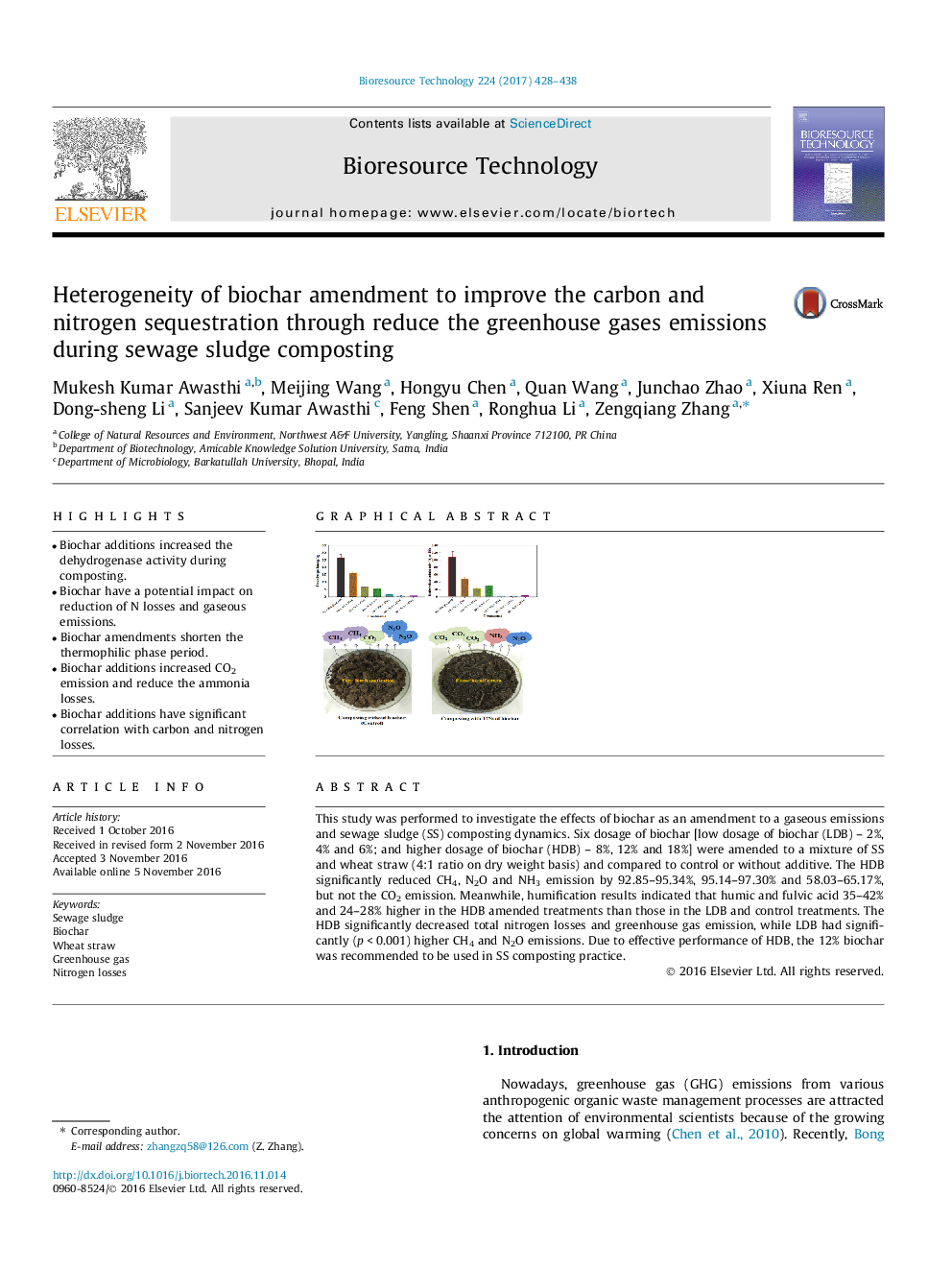| Article ID | Journal | Published Year | Pages | File Type |
|---|---|---|---|---|
| 4997862 | Bioresource Technology | 2017 | 11 Pages |
â¢Biochar additions increased the dehydrogenase activity during composting.â¢Biochar have a potential impact on reduction of N losses and gaseous emissions.â¢Biochar amendments shorten the thermophilic phase period.â¢Biochar additions increased CO2 emission and reduce the ammonia losses.â¢Biochar additions have significant correlation with carbon and nitrogen losses.
This study was performed to investigate the effects of biochar as an amendment to a gaseous emissions and sewage sludge (SS) composting dynamics. Six dosage of biochar [low dosage of biochar (LDB) - 2%, 4% and 6%; and higher dosage of biochar (HDB) - 8%, 12% and 18%] were amended to a mixture of SS and wheat straw (4:1 ratio on dry weight basis) and compared to control or without additive. The HDB significantly reduced CH4, N2O and NH3 emission by 92.85-95.34%, 95.14-97.30% and 58.03-65.17%, but not the CO2 emission. Meanwhile, humification results indicated that humic and fulvic acid 35-42% and 24-28% higher in the HDB amended treatments than those in the LDB and control treatments. The HDB significantly decreased total nitrogen losses and greenhouse gas emission, while LDB had significantly (p < 0.001) higher CH4 and N2O emissions. Due to effective performance of HDB, the 12% biochar was recommended to be used in SS composting practice.
Graphical abstractDownload high-res image (164KB)Download full-size image
